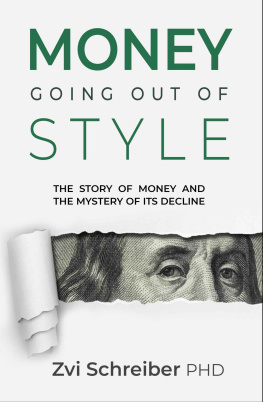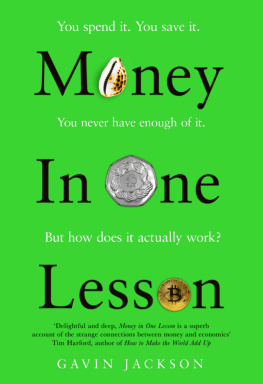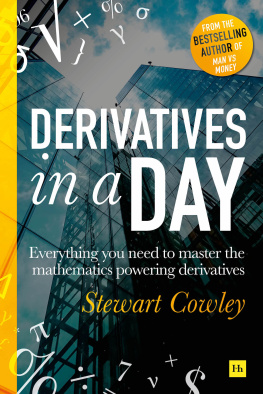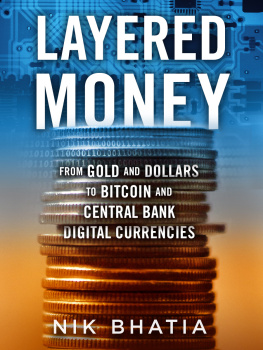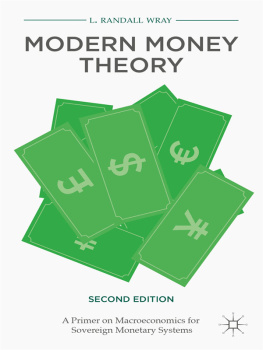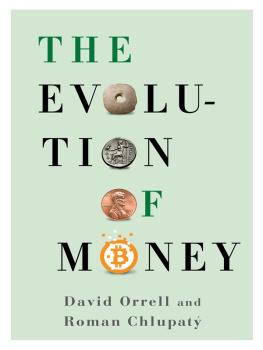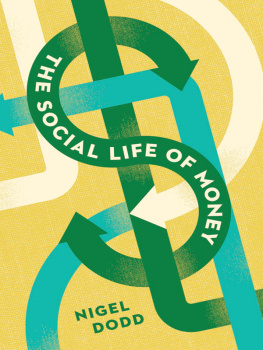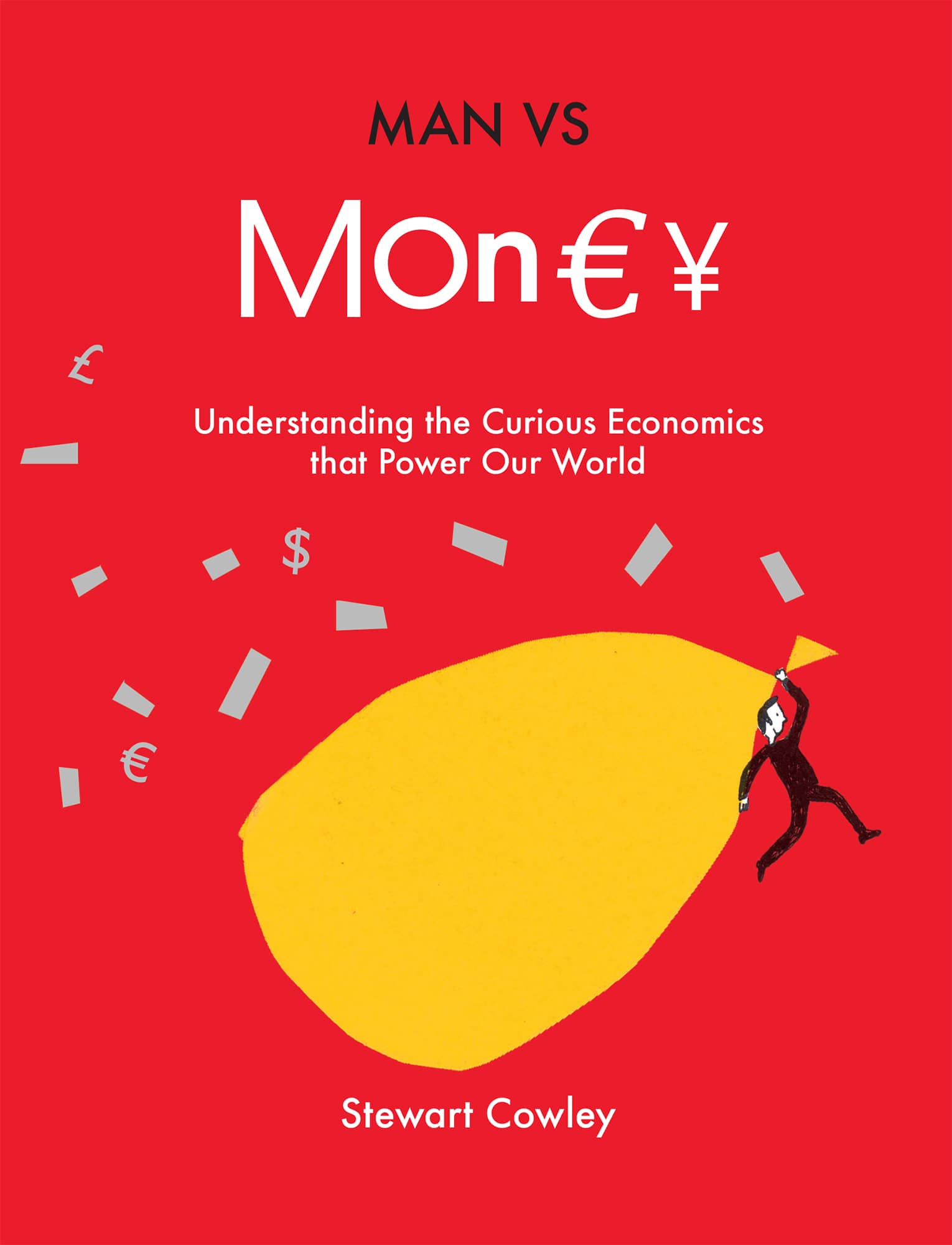Stewart Cowley has worked in the financial markets in New York and London since the 1980s. He has written columns for many of the worlds leading business publications including the Sunday Telegraph and the financial magazine Citywire. He is a regular guest on BBCs Newsnight, Radio 4 and SKY News.
MAN VS
MOn
Understanding the Curious Economics
that Power Our World
written by
Stewart Cowley
illustrated by
Joe Lyward

I know you think you understand what you thought I said but Im not sure you realize that what you heard is not what I meant ...
Alan Greenspan, Chairman of the Federal Reserve of the United States (19872006)
Contents
Guide
There was a time when we were all sick and poor. About four hundred years ago the healthiest and wealthiest place in the world to live was the Netherlands. You could put it down to the cycling and the cheese but most likely it was due to the creation of the Vereenigde Oostindische Compagnie, or the Dutch East India Company.
Besides possessing a name of jaw-muscle-tightening complexity, which was the beginning of the Dutch themselves abandoning the title in their own language in favour of the much more accessible English one, the VOC was the first truly multinational corporation. It also possessed the endearing ability to wage war, print its own money and imprison and execute convicts. Annual employee assessments must have been a real hoot.
The creation of the Dutch East India Company did more than give a whole new meaning and literalism to being fired; it was also the first company ever to issue shares in itself. Combined with a twenty-one-year monopoly to carry out trade activities in Asia, it made todays Apple Inc. look positively artisanal and bordering on the communist. It also gave rise to what we might like to think of as the modern economy involving companies, money and global trade.
As a consequence of this and, admittedly, other developments, global wealth and health boomed. For the next two hundred years it continued to rise from the paltry $40 a year for about forty miserable years until today, when you can expect to live a much more pleasant seventy-five years while enjoying an income of $40,000 per annum. Apart from an inconvenient dip in 1918 when the First World War conspired with a vulgar little virus called Spanish influenza to take out about 4% of the worlds population, it has been a pretty much continuous and increasingly raucous global party ever since 1602.
Inevitably, our material expectations and relationship with money have changed as we have become healthier and wealthier. Money itself has changed we have forsaken the Dutch East India Companys personally struck coinage and are now content with radio waves pinging credits between accounts or, most abstractly, have become glowingly content to accept electrons in an encoded memory board, allowing something called a virtual currency to be a means of exchange.
You would have thought that as a species we would be waving to the crowd as we pranced down the winning straight by now. But something has clearly gone very wrong with our financial system since the East India Company could strike both its own coinage and its own employees with impunity. We are now faced with a unique set of problems for the rest of the twenty-first century, some of which are due to our success, some down to simple mathematics and some that are most decidedly man-made. All of them are very real and set up an adversarial struggle with money such as we have never seen before.
The idea of this book is to shed light on some of the challenges and opportunities we have and to illustrate them for people who want to go on to learn more; hopefully this is your springboard into the depths of the subject. It is intentionally provocative for instance, the titles of the chapters should lead you into areas you may have heard of but have not really considered before: What is bitcoin? How does a country go bust? Where is all the money? In the process we will swing from a very distant view of Planet Earth to the close-up workings of the human mind. I hope you enjoy reading the book as much as I have enjoyed writing it.
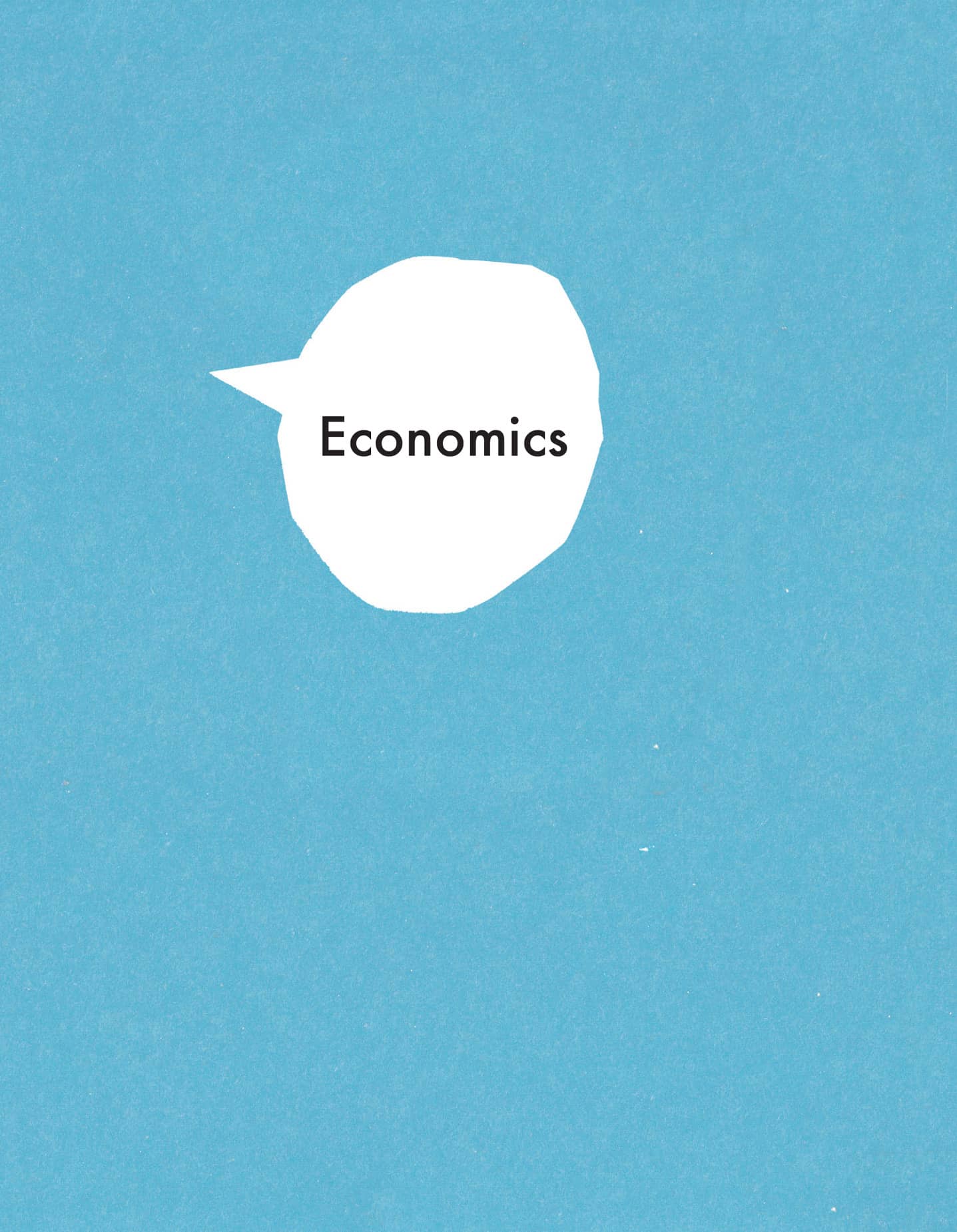
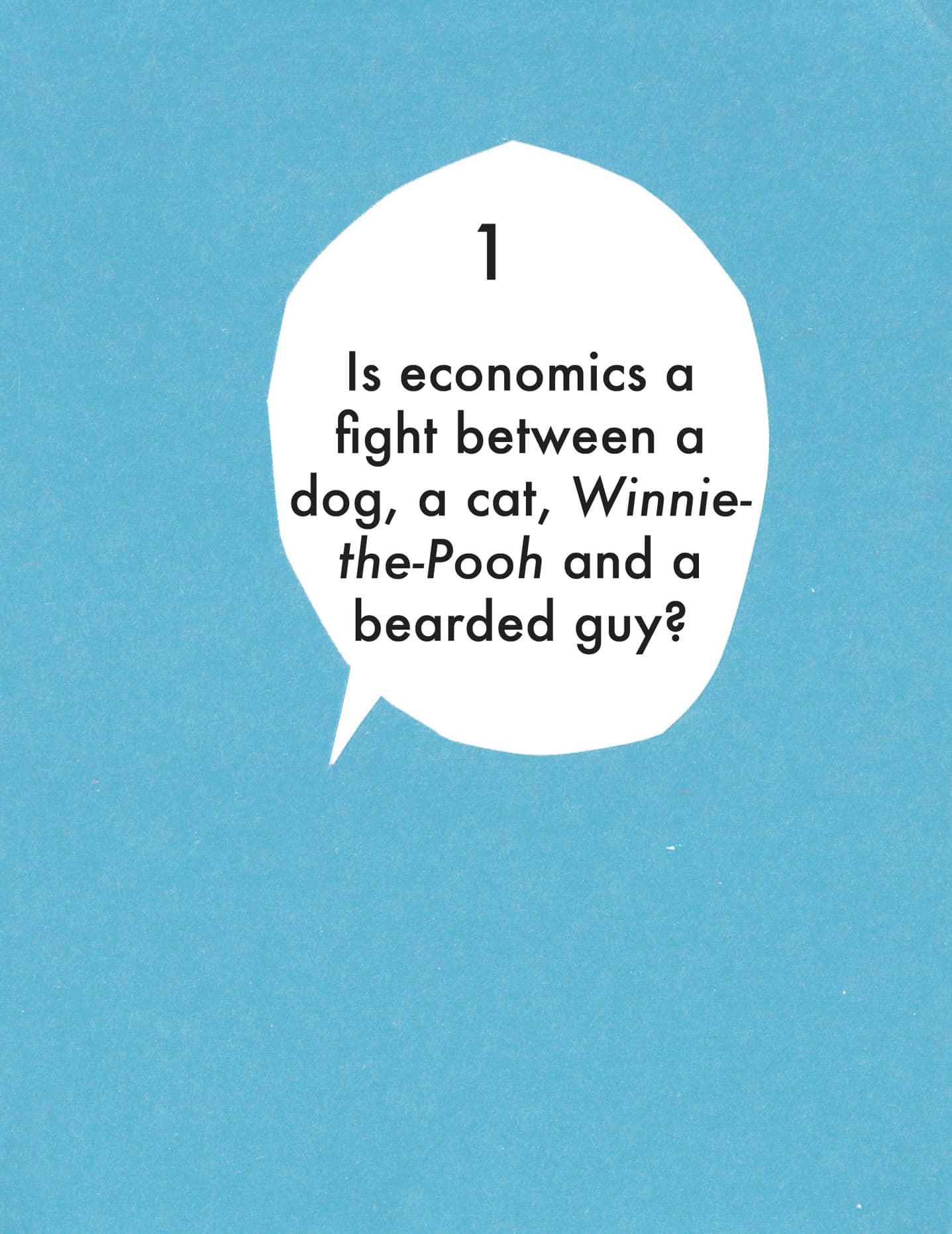
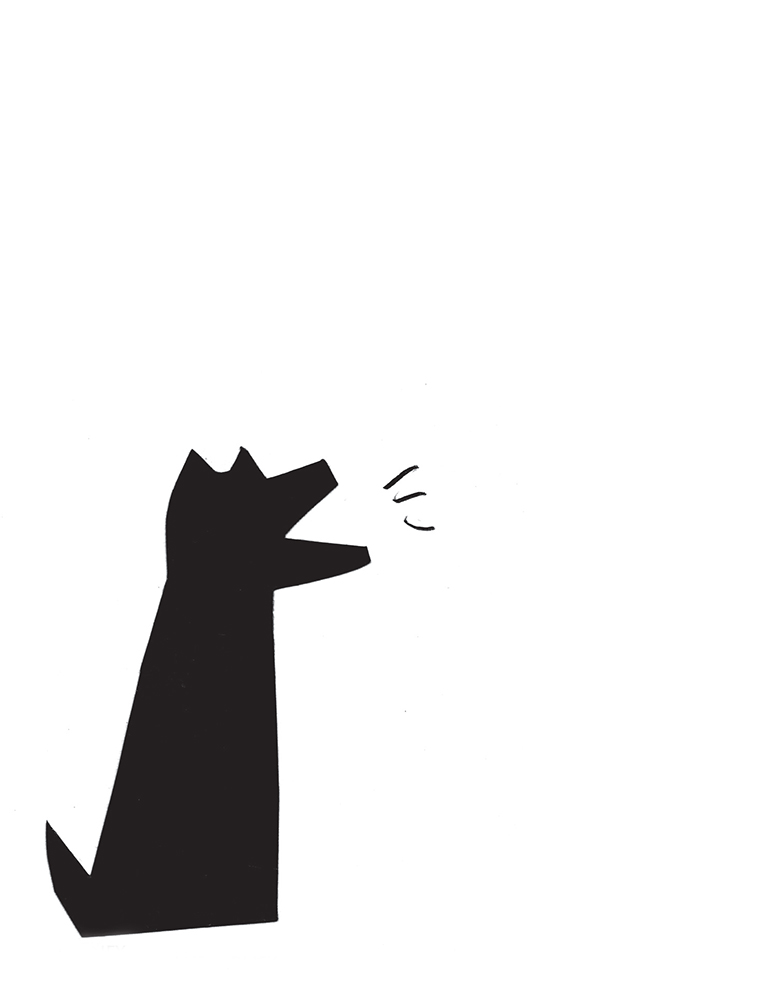

Man is in adversarial conflict with money everywhere he looks. For as long as humans have attempted to create large-scale organised societies, money and economics have been central to the attempt to create a long-lasting and stable world. But despite mans best endeavours, no economic theory has delivered anything close to a satisfactory system. And yet we keep on trying. It is the epitome of Albert Einsteins definition of madness: repeating the same behaviour over and over again and expecting a different result.
Wading through the competing ideas is equally bewildering. But to understand where we are today, you have to understand something of where we have come from. If you want to visualise it, you might characterise this as an enormous fight between a dog, a cat, some characters from Winnie-the-Pooh and a bearded guy.
Strikingly, all the people these characters represent have attempted to codify society through economics. They are highly intelligent and articulate and have the sole intention of making the world more understandable and ultimately better. But who were they and, given where we are today, what can we learn from them in the twenty-first century? First of all we have to have a look at who and what they thought ...
The Dog classical economics
Toby, our Cairn terrier, displays many of the characteristics of a classical economist:
He doesnt like being told what to do: hes the same breed as the chaos-causing Toto in The Wizard of Oz. Its easy to sympathise with Miss Almira Gulch/the Wicked Witch of the West at times.
The only acknowledgement he has of authority is that it is necessary for providing some basic things: opening packets of food and providing the transport to his walk each day.
He thinks there is a mysterious unseen force, or hidden hand, keeping things in order. At 4.30 p.m. each day he will be sitting by his bowl, alternately staring at you and the bowl. Where is it? is the clear internal question tripping across his brain. He is, frankly, bewildered as to why it isnt there but he does know, if he waits long enough, that order will be restored: food


